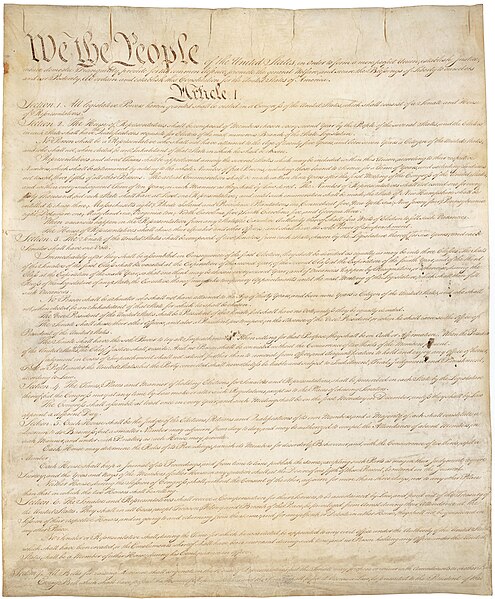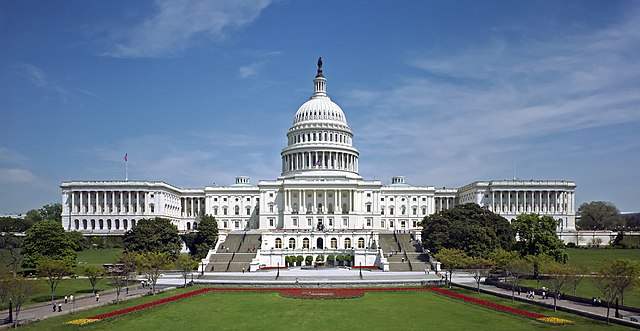A deposition in the law of the United States, or examination for discovery in the law of Canada, involves the taking of sworn, out-of-court oral testimony of a witness that may be reduced to a written transcript for later use in court or for discovery purposes. Depositions are commonly used in litigation in the United States and Canada. They are almost always conducted outside court by the lawyers themselves, with no judge present to supervise the examination.
Expert witness deposition in a mock trial simulation. The court reporter, who is an officer of the court, administers the oath to the deponent.
Example page from stenographers copy of an expert's deposition from Anderson v. Cryovac
The law of the United States comprises many levels of codified and uncodified forms of law, of which the most important is the nation's Constitution, which prescribes the foundation of the federal government of the United States, as well as various civil liberties. The Constitution sets out the boundaries of federal law, which consists of Acts of Congress, treaties ratified by the Senate, regulations promulgated by the executive branch, and case law originating from the federal judiciary. The United States Code is the official compilation and codification of general and permanent federal statutory law.
Constitution of the United States
The United States Congress enacts federal statutes in accordance with the Constitution.
The Supreme Court of the United States is the highest authority in interpreting federal law, including the federal Constitution, federal statutes, and federal regulations.
Law affects every aspect of American life, including parking lots. Note the citations to statutes on the sign.






